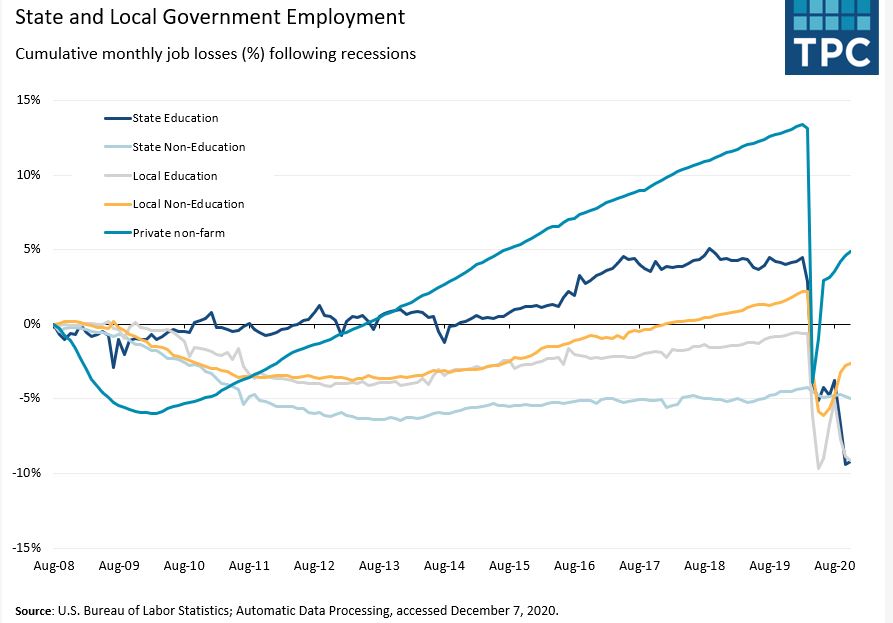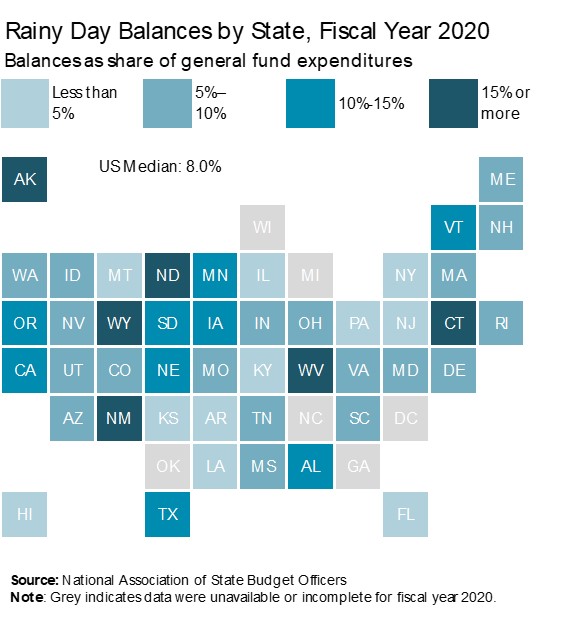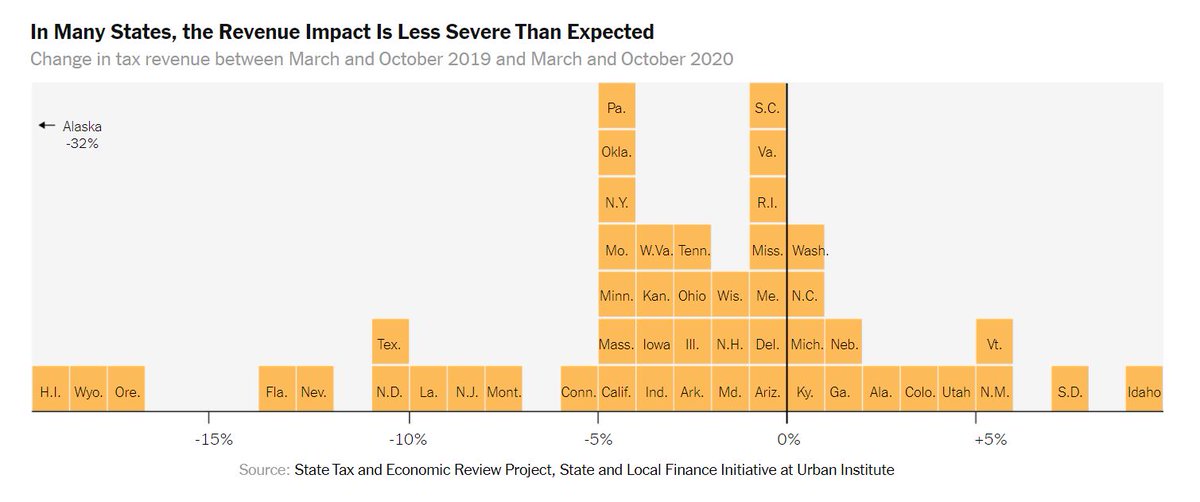Knock out reporting by @NYTimes this morning on economics and politics of state and local aid. A few thoughts... https://www.nytimes.com/2020/12/17/business/stimulus-state-local-aid.html?referringSource=articleShare
This is not a story about merely stabilizing public services for individuals snd businesses who rely on them. It’s about the role of state and local governments in our economy https://www.taxpolicycenter.org/publications/strengthening-federal-state-local-partnership-recession-and-recovery
As Chairman Powell notes, states and localities have already cut 1.3 million jobs:
“It’s a very large number of people to be out of work from just that one source,” he said.
“It’s a very large number of people to be out of work from just that one source,” he said.
It's more than in the Great Recession, from which some parts of state and local government employment never recovered
As @jimtankersley and @ESCochrane note the economic argument is clear cut.
We know state and local governments can't run deficits (fixing important typo from previous tweet!). They can save and they did - more than any other time on record - going into this crisis
We know state and local governments can't run deficits (fixing important typo from previous tweet!). They can save and they did - more than any other time on record - going into this crisis
But, absent federal aid and after exhausting one-time solutions (which they did in FY20), they have to cut spending or raise taxes to satisfy balanced budget requirements. https://www.urban.org/research/publication/balanced-budget-requirements
That's why state and local aid delivers a big bang for the buck - more than any other CARES funding @USCBO has found
Muddying the picture, as illustrated by @emilymbadger @qdbui and @aliciaparlap, is the varied experience of states so far depending on:
- revenue structure (sales vs. income tax dependent)
- economic structure (tourism and oil dependent)
- COVID incidence and responses
- revenue structure (sales vs. income tax dependent)
- economic structure (tourism and oil dependent)
- COVID incidence and responses
But here's the thing: we know state and local governments aren't built to be economic shock absorbers. They are built to be safety net providers. We are seeing a million initial UI claims a week. If this recession wears on and Congress dithers, who will be left holding the bag?
And a question: in what other sector of the economy (small business, airlines, restaurants) does a mixed picture (some entities doing better than others, some losses not as bad as feared) mean federal assistance is completely off the table?

 Read on Twitter
Read on Twitter






